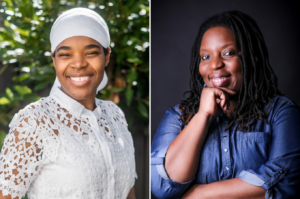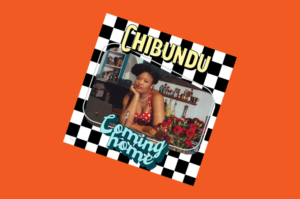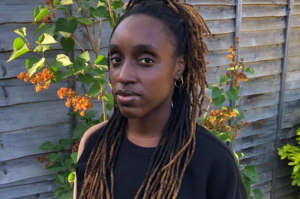Two weeks ago, we announced that Angela Ajayi was one of the twelve writers who won the 2017 PEN/ Robert J. Dau Short Story Prize for Emerging Writers. Her winning story, “Galina,” was published last year in Fifth Wednesday Journal and was included in our monthly literary digest for February.
Partly inspired by Holly Morris’ and Anne Bogart’s 2015 documentary Babushkas of Chernobyl, the story is set in Ukraine and, in its tender study of a woman’s relationship with her mother, presents a familial love pervaded by a sense of loss.
With ten years of experience in publishing as a book editor, Ajayi is currently a freelance writer at Wild Review River and The Common Online. In the interview below, she talks about cultural intersectionality, her inspiration, her career trajectory, her favorite writers, and what her PEN America award win might mean.
***
1. Congratulations on your PEN America Award win. We at Brittle Paper are elated. How does it feel having your debut story recognised by PEN America?
Thank you. I’m quite astonished. Having a first story published in a reputable journal felt good enough to me as a new fiction writer; getting an award for it is an unforeseen coup.
2. Your winning story, “Galina,” immerses us in a Ukrainian woman’s relationship with her mother, a relationship haunted primarily by her fear of losing her, but also by her fear of other things she has lost. Those fears are touchingly rendered. The woman, Galina, “had come undone in a way that couldn’t be measured,” and “if she was losing her mind, she was not fully aware of the symptoms.” She has ended her marriage to a Nigerian man, has “returned from Nigeria for good,” and has prevented herself from finding love in a second relationship. When and how did the story come to you?
Many of my stories exist in some form or the other in my mind long before I start writing them. When character, plot and setting come together in a pliable way, with enough inherent tension between them, I begin the writing process. So it is often challenging to pinpoint the exact moment of a story’s inception. However, I know that I have always wanted to write about European women like my mother, a Ukrainian, who married African men and moved to African countries. The cultural differences they encountered intrigued me; the character Galina grew out of this intrigue and then later a desire to construct a literary portrait out of this meeting of seemingly disparate cultures. But because most of “Galina” takes place in Ukraine some of that cultural intersectionality is portrayed through a diffused lens of course. It’s not as present, but it’s still a vital part of the story’s narrative arc.
3. Galina’s stay in Nigeria is a life of “cultural coagulation that would only result in heartbreak.” Could you tell us more about this description?
Without giving away too much of the plot, I’ll say Galina experiences physiological and emotional difficulties while in Nigeria that necessitated such a description. Her relationship with her ex-husband Umaru was unsuccessful, mainly because she couldn’t meet some of the obligations of Nigerian culture.
4. I like that your prose is filled with strong imagery, a lot of birds, fruits and vegetation. When lines like “The swallow on the tree lowered its short neck and pecked at a cherry, digging into the red flesh and exposing the brown pit” are juxtaposed with “The sound she emitted was not the usual hoarse-sounding one—it was like she had just whistled a happy tune” in a paragraph that ends with “A whiff of raw garlic hit Galina’s nose,” one realizes how this is the kind of story that demands engagement with all the senses—seeing, hearing, smelling. How much rewriting and personal editing went into it?
I finished the first draft of the story in late summer of 2015. I put it away for a month and then returned to it with fresh eyes to rework the ending and round out the main character. At that point, I also worked with a manuscript editor in Portland, Liz Prato, who is also a dear friend. She read it and sent useful feedback, which I incorporated. Then I sent it out to a few journals and waited, still tinkering with it now and then.
When the Guest Editor of Fifth Wednesday Journal, Rachel Swearingen, began soliciting fiction for their 2016 fall issue, I sent her the story as well. She read it and to my great joy said she wanted to publish it with the caveat that I rework it based on her edits. She sent me those edits and then more edits after a first revision. Some of the more sensual moments you mentioned above were inserted later after I felt more in control of the story and could heighten specific moments without disrupting the narrative flow.
5. The setting is intriguing—an exclusion zone in Ukraine suffering from a nuclear power plant blast eight years before—and Galina’s mother’s insistence on living on there is worrisome. Why does she make that choice? What is it about our human tendency to seek emotional refuge in even in a dangerous place?
The story’s setting was inspired by the documentary film, Babushkas of Chernobyl, about a group of old women living in the Dead Zone in Ukraine, an exclusion zone much like the one I fictionalized in “Galina.” The decision to defy official orders and remain in a very toxic environment would probably be personal for each person, though I suspect, as with the Galina’s mother, it could be linked to notions of one’s mortality and sense of familial comfort. We want more so to be around what is familiar, especially, I think, as we grow old and face the inevitability of dying. For Galina’s mother, that desire was stronger than the fear of a radioactive force that existed invisibly over and in the land.
6. You began as an editor, but have you always felt you had it in you to be a writer?
I’ve always harbored ambitions to write though lacked the confidence to do so until about ten years ago when I started writing for Wild River Review. Editing other people’s work was a welcomed distraction from my own anxieties about becoming a writer; I also enjoyed being an editor very much. I’m happy to have overcome those anxieties to a degree, and to have helped publish wonderful writers, many of them African scholars, while working as a book editor.
7. Given your publishing background, did you have expectations when you first sent out “Galina”? Was Fifth Wednesday Journal the first outlet you sent it to? How did it feel having your work edited?
In good faith, I sent out “Galina,” formerly titled “Bird Woman,” to a few journals after I finished it. I received rejection letters, some of them nice ones. “Galina” is a rather complex tale, weaving in a main character’s life in two countries, flirting with magical realism, and engaging dark themes such as death and miscarriage. I don’t want to make generalizations about what usually gets published in the US, but perhaps it isn’t the kind of story some editors felt would resonate with their readers. The selection process at many literary journals has always been mystifying to me; I worked primarily with books while in the publishing industry. I can’t say I’m any wiser about it all. And yes, I often do enjoy being edited as long as the exchange is respectful and productive.
8. Your story, “Bird Woman,” earned an honourable mention in Glimmer Train’s 2016 Fiction Open. Have you written other stories aside these two?
Yes, I currently have three new stories in the works, one of them set in northern Nigeria, and the other two set yet again in Eastern Europe.
9. Two Nigerians, you and Grace Oluseyi, are among the twelve winners of PEN America’s short story award, and a third, Helen Oyeyemi, took home the Open Book Award for her short story collection. Is this a happy coincidence, or are Nigerian short stories recording an increased impact in the US?
I’m not sure which it is. I do think there is a greater awareness of the need to diversify the American literary landscape for obvious reasons, the current political climate being one of them.
10. Do you have a favourite short story writer? And favourite short stories?
This is a tough question—it’s such a challenge to choose from so many great short story writers out there. I admire the short stories of Mozambican writer Luis Bernando Honwana whose book Mangy Dog and Other Stories I read as a graduate student at Columbia University; it impressed on me the importance of satire in resisting oppression. These days, I also find myself drawn to Russian writers, including Anton Chekhov, Nikolai Gogol and the lesser known Yevgeny Zamyatin whose short stories draw on the turbulent politics of pre- and post-Revolutionary Russia. Vladimir Nabokov is a favorite too. I reread his rather peculiar but brilliant short story, “Signs and Symbols,” almost every year for inspiration.
11. Are you working on a book?
Yes, I’m working on a collection of stories.
12. Thank you so much, Angela. You’ve been generous with your time. Once again, congratulations! We look forward to the completion of your collection.
Such thoughtful, probing questions! Thank you.
***
Read “Galina” in Fifth Wednesday Journal‘s Fall 2016 Issue.
Photo credit: Michael Wessel.










Catherine Onyemeluwe March 27, 2017 12:32
I almost didn't read this. glad I did. Her story has a Nigerwife, a foreign woman married to a Nigerian man. I'm just completing my chapter about Nigerwives for my upcoming book on Nigerian customs that teach belonging and community.